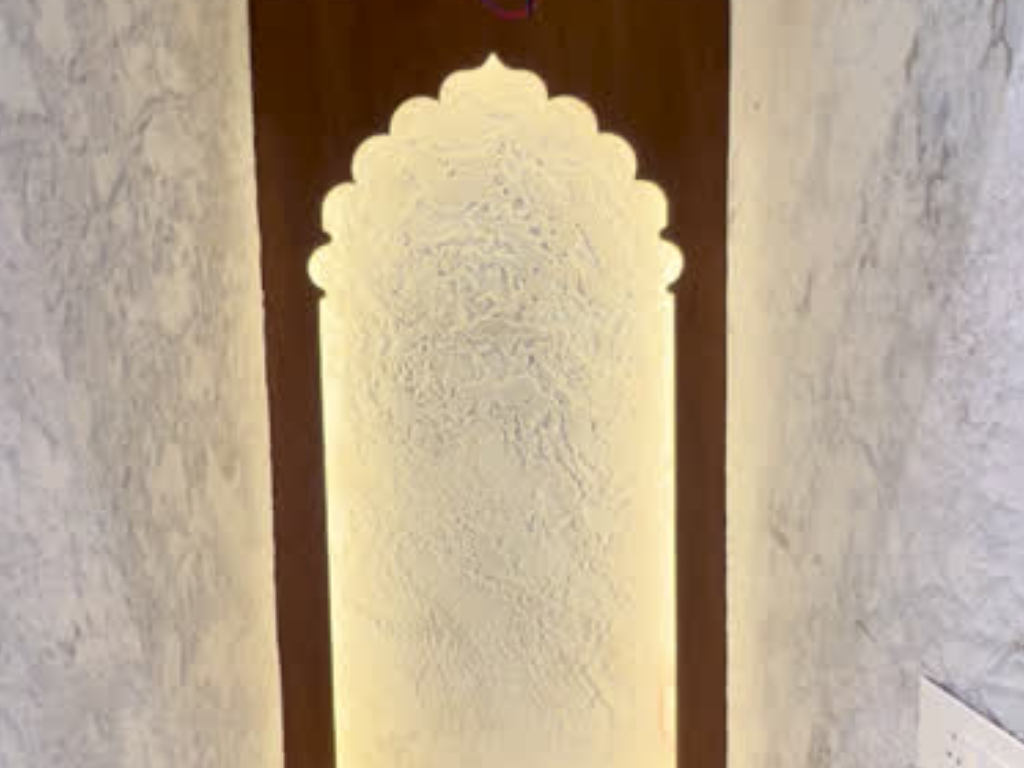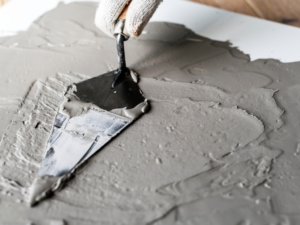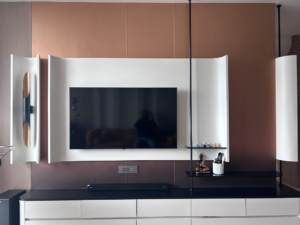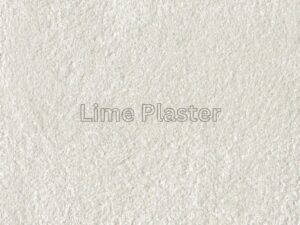Microconcrete
In modern design, microconcrete is causing a buzz as a trendy and versatile way to revamp surfaces. But why the fuss over concrete? For one, it’s thinner, lighter, and can be applied on top of existing materials such as tiles, wood, or plaster—a renovation favourite.
Designers and homeowners love it for its seamless finish, durability, and endless customisation options. Whether you’re aiming for a sleek minimalist look or an industrial-chic vibe, microconcrete delivers unmatched elegance. Let’s dive into why this material is a game-changer for modern interiors.
Microconcrete vs. Alternatives
-
Microconcrete vs. Microcement
Whereas both are thin applications, it has a little more thickness to it, providing greater durability and texture choice. Microcement is smooth, while microconcrete can be textured to resemble raw concrete or polished stone, which makes it more suitable for feature walls and floors.
- Microconcrete vs. Regular Concrete
Traditional concrete is heavy, and structural support is needed, and it’s more difficult to install. Microconcrete is light, can be applied thinly, and does not require reinforcement. It’s also cheaper when it comes to renovations.
- When to Use Microconcrete
Use it when you desire:
– A sleek, seamless appearance
– A light application for floors and walls
– Individual colors and textures for a special appearance
Microconcrete Wall Finish
- Style Inspiration & Maintenance
It makes walls become beautiful focal points. Use it for:
– Accent walls in living rooms or bedrooms
– Kitchen backsplashes for a shiny, easy-to-clean surface
– Facades for a contemporary, weather-resistant look
Maintenance is easy—just clean with a damp cloth and gentle cleaner. Re-sealing every few years keeps it new-looking.
- Key Benefits & Versatility
– Durability: Resists cracking and wear
– Water resistance: Great for bathrooms and kitchens
– Design flexibility: Select from matte, satin, or textured finishes
Top Uses in Interior Design
- Floors
Microconcrete forms smooth, long-lasting floors—perfect for a renovation over existing tiles or wood.
- Walls
Get a contemporary or industrial aesthetic with microconcrete walls in neutral or contrasting colors.
- Kitchens & Bathrooms
Water and heat-resistant, microconcrete shines on countertops, sinks, and shower walls.
- Furniture & Custom Pieces
From tabletops to vanities, microconcrete delivers a high-end, custom look.
Microconcrete Pros & Cons:
✅ Pros:
– Thin application (applicable over existing surfaces)
– Limitless customisation (colors, textures, finish)
– Low maintenance & durable
❌ Cons:
– Recommended professional installation for optimum performance
– May be more expensive than some options
DIY vs. Hiring a Pro:
Can You Do Microconcrete Yourself?
DIY is an option for small projects, provided you prepare well and are patient. Steps:
- Cleaning and priming the surface
- Applying in thin layers
- Sealing for protection
But for huge surfaces or intricate work, a pro does it perfectly.
Tips for Maintenance:
– Daily Cleaning: A pH-neutral cleaner; avoid harsh chemicals.
– Resealing: Every 2-3 years for heavy traffic areas.
– Fixing Damage: Minor scratches can be buffed out; more serious cracks can be repaired by a professional.
Breathtaking Microconcrete Inspo:
– Simple Homes: Sleek, monochromatic microconcrete for a minimalist effect.
– Industrial Lofts: Textured finishes for an industrial-chic, urban feel.
– Accent Pieces: Patterned or colored microconcrete for eye-catching highlights.
Conclusion:
It is the ultimate solution for anyone who wants a contemporary, long-lasting, and stylish surface solution. Whatever your renovation needs for floors, walls, or furniture, microconcrete provides unparalleled versatility and sophistication.
Next Steps:
– Obtain samples to experiment with colours and textures
– Seek advice from an expert for major projects
Ready to give your space a new lease on life? Welcome the magic of microconcrete and take your interiors to an entirely new level!




